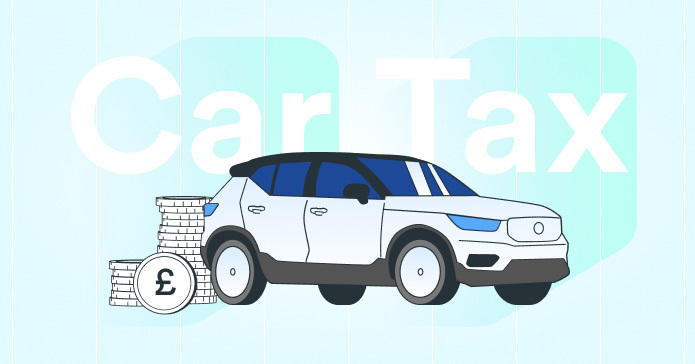As we navigate into a more environment-conscious era, several aspects of our daily lives are undergoing significant changes. One such facet is vehicle tax, which, in the UK, is now linked to just how eco-friendly your vehicle is. Let the best green wins!
What is Vehicle Excise Duty (VED)
Vehicle Excise Duty (VED), a default expense associated with car ownership in the UK, can prove to be a considerable outlay. But did you know that this cost varies depending on how much your vehicle contributes (or doesn't contribute) to environmental pollution?
The more environmentally friendly your car is, the less you might have to pay in terms of VED. A noteworthy point is that some car owners end up paying no car tax at all, a benefit that comes with owning zero-emission vehicles.
Exempt from Car Tax
To make things easier and transparent, you can check your vehicle tax rates on the government's official website, gov.uk. This handy online resource provides you with a clear picture of what you can expect to pay in terms of vehicle tax.
If you are one of the following, you may be exempt from paying car tax;
- Vehicles used by a disabled person: If a vehicle is used by a disabled individual for their personal use, it is exempted from car tax. There are strict criteria to meet, including being eligible for specific mobility allowances.
- Mobility scooters, powered wheelchairs, and invalid carriages: These vehicles are tax-exempt, given they have a maximum speed of 8mph on the road, and are fitted with a device limiting them to 4mph on footpaths.
- Historic vehicles: Vehicles that are over 40 years old are normally exempted from paying vehicle tax. However, it is the responsibility of the owner to apply for this exemption.
- Electric vehicles: As part of the effort to encourage more eco-friendly transportation options, all-electric vehicles are currently exempt from car tax. If your 0 carbon emission environmentally friendly electric car is worth more than £40K you`ll still pay Car Tax.
- Mowing machines: This might seem like a strange inclusion, but yes, mowing machines are exempt from car tax. They must, however, be designed and used solely for cutting grass.
- Vehicles used just for agriculture, horticulture, and forestry: These are vehicles used off-road or on the roads crossing the land they’re used on.
- Cars that were registered between 1 March 2001 and 1 April 2017 produce a maximum of 100 grams of carbon dioxide per km. Usually, luxury sports cars like Bugatti, Rolls Royce etc. are known to produce the highest amount of carbon emission.
Check Vehicle Tax
Remember, these are general criteria and some certain rules may apply. Always check the gov. uk website for the most updated and detailed information.
How much is Car Tax?
As of 2023, the Vehicle Excise Duty (VED) or car tax in the UK is based on a band system that takes into account the carbon dioxide (CO2) emissions of your vehicle.
- Cars that emit up to 100g/km of CO2 are exempt from the tax.
- For cars that emit 101-110g/km of CO2, the standard rate is £20 per year.
- For those emitting 111-130g/km, it's £145 annually.
- Cars with CO2 emissions of 131-150g/km are taxed at £165.
- The rate continually increases with the level of emissions, reaching up to £2175 for cars emitting over 255g/km of CO2.
It's essential to note that these rates apply to cars registered after 1st April 2017. For cars registered between 1st March 2001 and 1st April 2017, different rates apply. Always check the [gov.uk] website for the most accurate and updated information.
Renewing Vehicle Tax
There are different ways of paying your car tax. You can either spread the cost and pay every 6 months or you can do it monthly, the only catch is to pay a 5% surcharge if you are paying monthly or every 6 months, if you pay it up yearly, there is no surcharge.
Setting up a direct debit is easy, you just need the Post Office to do that. Go to your local post office or fill out the online form to tax your car
Consequences of Not Paying Car Tax
The ramifications of not taxing your car in the UK can be significant. The Driver and Vehicle Licensing Agency (DVLA) has strict regulations in place to ensure that all drivers comply with the vehicle tax rules. If your vehicle is untaxed, you could face a number of penalties. It's important to note that even if you're not using your vehicle, it needs to be taxed unless you declare it off the road with a Statutory Off Road Notification (SORN). For more information about VAT on used cars, read here
If you fail to tax your vehicle, the DVLA will send you a warning letter. If you ignore this and continue to avoid paying, you may receive a £80 penalty from the DVLA. This fine can be reduced by half if paid within 28 days. However, if you fail to pay within this timeframe, you could be fined up to £1,000.
In more severe cases, the DVLA may clamp, impound, or even sell your vehicle. If your vehicle is clamped, you'll need to pay a release fee of £100, and an additional £160 surety fee. If you can't show that the vehicle has been taxed, the surety fee is forfeited. If your vehicle is impounded, the fees increase drastically. You'll need to pay a £200 release fee and storage costs of £21 per day. Furthermore, you may also have to pay a surety fee of £160. If the surety fee is not returned within two weeks, the vehicle may be sold or destroyed.
It's worth noting that these are just the financial penalties. If your vehicle is untaxed, it could also invalidate your insurance. Without valid insurance, you could face further penalties including fines and prosecution. So, it's not just a matter of environmental consciousness or financial responsibility, it's also a matter of legal compliance. Always ensure that your vehicle is properly taxed.
Tax My Vehicle
Overall, taxing your car is vital and easy to do on gov.uk. For further readings on road tax, vehicle tax or business mileage check our comprehensive blog.













